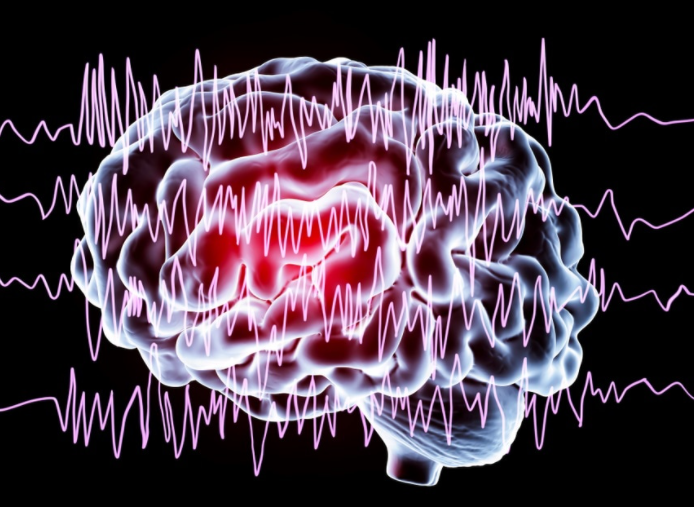
Interacting with other people having epilepsy can help you manage it. Check out other ways to deal with epilepsy here.
Some of the things people find helpful when dealing with epilepsy include:
- Taking your medicines properly.
- Maintaining routines.
- Following health guidelines for epilepsy.
- Avoiding drugs that could worsen epilepsy.
Keep trying other methods of dealing with seizures until you find a way that works for you.
What is Epilepsy?
Epilepsy is a chronic disease characterized by repeated seizures for no reason. Suppose a person has two non-primary seizures (or one non-primary seizure that may have multiple causes).
If it is not due to a known and reversible medical condition, then it is diagnosed as epilepsy.
Seizures may be related to brain damage or family predisposition, but the cause is usually completely unknown. The word epilepsy does not suggest the source or extent of the seizure.
Some patients with epilepsy have far more than one type of attack and could have certain neurological effects too.
Sometimes in the epilepsy group, the results of EEG (electroencephalogram) tests, clinical history, family history, and appearance are similar. In such cases, their condition can be described as a specific epileptic syndrome.
Although signs of seizures may impact any body part, neurological events can cause brain symptoms to occur.
The nature of the incident, how it develops, how often the brain is influenced, and how long it lasts have significant consequences. These factors determine the characteristics of seizures and their impact on individuals.
Epilepsy and seizures can affect wellbeing, relationships, employment, driving, and so forth. Public awareness and treatment of epileptic patients tend to be greater than the actual attacks.
Dealing with Epilepsy
It may be complex to live with epilepsy (recurrent seizures); there are too many things to remember. These problems can be especially overwhelming when epilepsy is first diagnosed.
There are some ways to make the problems you can encounter easier. Here are some tricks and tips and helpful ideas and tools that will have several specific solutions.
Creating a routine system that can improve your life simpler is by far the most essential aspect. The following steps will ensure long-term success in dealing with epilepsy.
- Creating routine procedures for the natural integration of drugs
- Remembering your doctor’s appointments
- Addressing underlying issues in your daily life.
Here are some tips to take care of your mental health.
Taking Your Medications
Taking your medication at the same hour each day as prescribed by your doctor is not easy and convenient. We live in a world that is evolving quickly, and we all have many other obligations.
However, even skipping one or two doses of the drug can cause seizures, so it is critical to remember to take it as prescribed.
However, sometimes everyone skips a dose! It may cause you to be confused about what to do, or it may sometimes make you realize that you do not have the medicine when you go to get your medications.
Do not worry about these. Instead, let us take a look at the tips below that may solve your problem to help you avoid future errors.
Pregabalin is a known drug that can be used to treat epilepsy. You can buy Pregabalin from here.
Running Out of Medication
Always aim to keep a note of the number of drugs left and stock up a few days before you need them. Missing even a few doses of the medication will lead to seizures.
Try adding a reminder to your phone calendar or a paper calendar or maintain a diary.
The reminder should occur at least one week before the drug runs out. This way, when the phone reminds you to do so, you will have plenty of time to get the drug supplementation.
Healthy Habits for Controlling Epilepsy
Many suggestions appear in the media: drinking plenty of water, reducing carbohydrates, using other fashionable diets, etc. Recommendations seem to change every week.
Always consult your doctor about any lifestyle changes that you want to make. The doctor can give you specific recommendations for patients with epilepsy.
Seizure Safety
To keep healthy and prevent yourself or others from trauma, people with epilepsy need to understand some particular factors.
The easiest way to think about what is safe and what is uncertain is to ask yourself the following question: “If I have a seizure now while doing some activity, what will happen?”
For example, suppose the activity is independent swimming. In that case, it can lead to attack and drowning, and there is no one to help you and keep you safe.
Inform your colleagues, families, and employers that you have epilepsy. Describe what epilepsy is—tell them what to do if you get an attack when you are with them.
Warn them about the conditions in which they should call emergency services.
Medications that Can Worsen Seizures
Certain treatments increase the possibility of seizures. Not all physicians are as confident as epilepsy experts when handling patients with epilepsy.
Therefore, it is crucial to know some of the commonly used medicines to get emergency treatments.
Conclusion
I hope you find these tips helpful, and they will help you manage epilepsy now. It is important to keep trying new techniques until you find the right one for you!
Here is how doing activities with family members can help you with mental health.